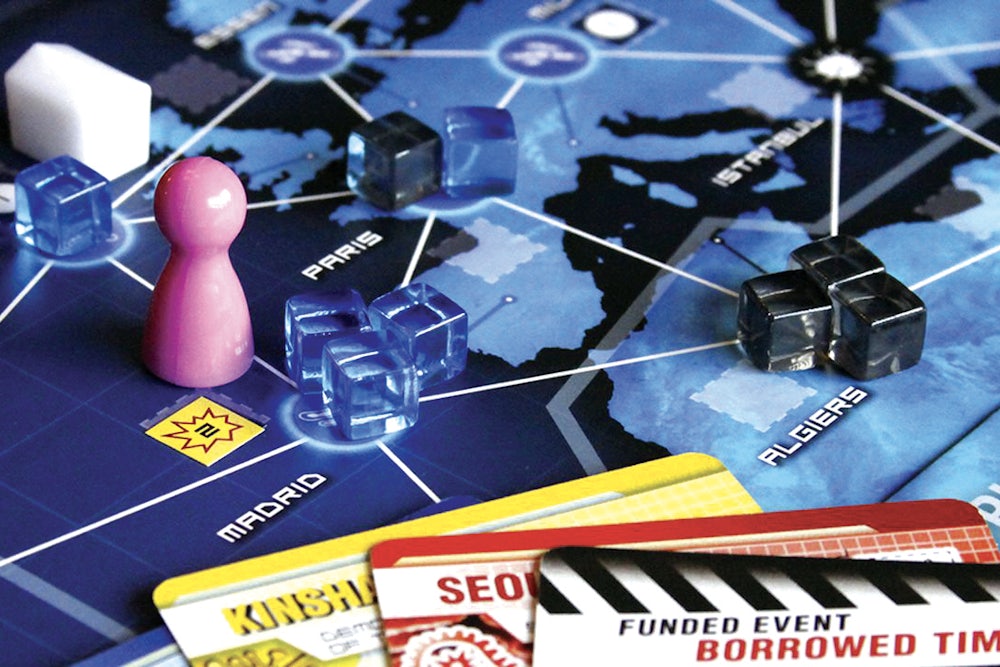Last winter, a new board game, Pandemic Legacy, did something quite rare: It became the No. 1 board game of all time on BoardGameGeek.com, beating more than 83,000 games. First printings of games usually run between 5,000 and 10,000; pre-orders of Legacy were an unheard-of 80,000 copies. But in some corners of the hobby game world, Legacy’s rise is controversial. One review said its popularity was proof that “all of these Euro lovers have secretly always wanted a taste of what Ameritrash games provide.” This, in the board game world, is what is called a sick burn.
In Legacy, players work together to eradicate diseases spreading across the globe in a yearlong campaign narrative of a couple dozen sessions. The board is permanently changed every time, as players add stickers and rip up cards. In this way, Legacy blends two traditions of board game genres—its mechanics are simple and clean, like European games, and engagingly dramatic, like American ones.
Board games are like literature; in Germany game designers are often referred to as authors, game companies as publishers. They reflect the culture in which they were created. In the 1980s, when Parker Brothers tried to introduce Risk to the German market, the game was nearly banned for its overt themes of military invasion, a sensitive subject post–World War II. The language of the game had to be changed from “global domination” to “liberating the world.”
Germany’s cultural taboo around violence required its designers to innovate away from combat-centric gameplay, Stewart Woods argues in Eurogames. What emerged were games that emphasized individual growth and achievement over direct conflict. Instead of eliminating their opponents, players had to outperform them. This created a geographic game divide: Eurogames and Ameritrash.
Elegance defines Eurogames. They’re easy to learn and often take less than an hour—simple, but not simplistic. Winning depends on making good choices rather than chance. The most famous Eurogame is perhaps Settlers of Catan, selling more than 18 million copies worldwide, in 30 languages.
Ameritrash, a term board game fans began using in the early 2000s, originally referred to popular games like Monopoly, in which winning depends on luck. Today, their core priority is drama—they are meant to tell a story. Conflict and player elimination add emotion—it’s standard to infuriate your Game of Thrones opponent by saying something like, “A Lannister always pays his debts.” There’s an obvious Americanness to thematic, conflict-heavy, and individualistic Ameritrash.
Over the past decade, the divide between the two genres has blurred, due, in part, to the internet. Designers have begun to combine the best genes from each, creating glorious board game mutants with an eye for world domination.
